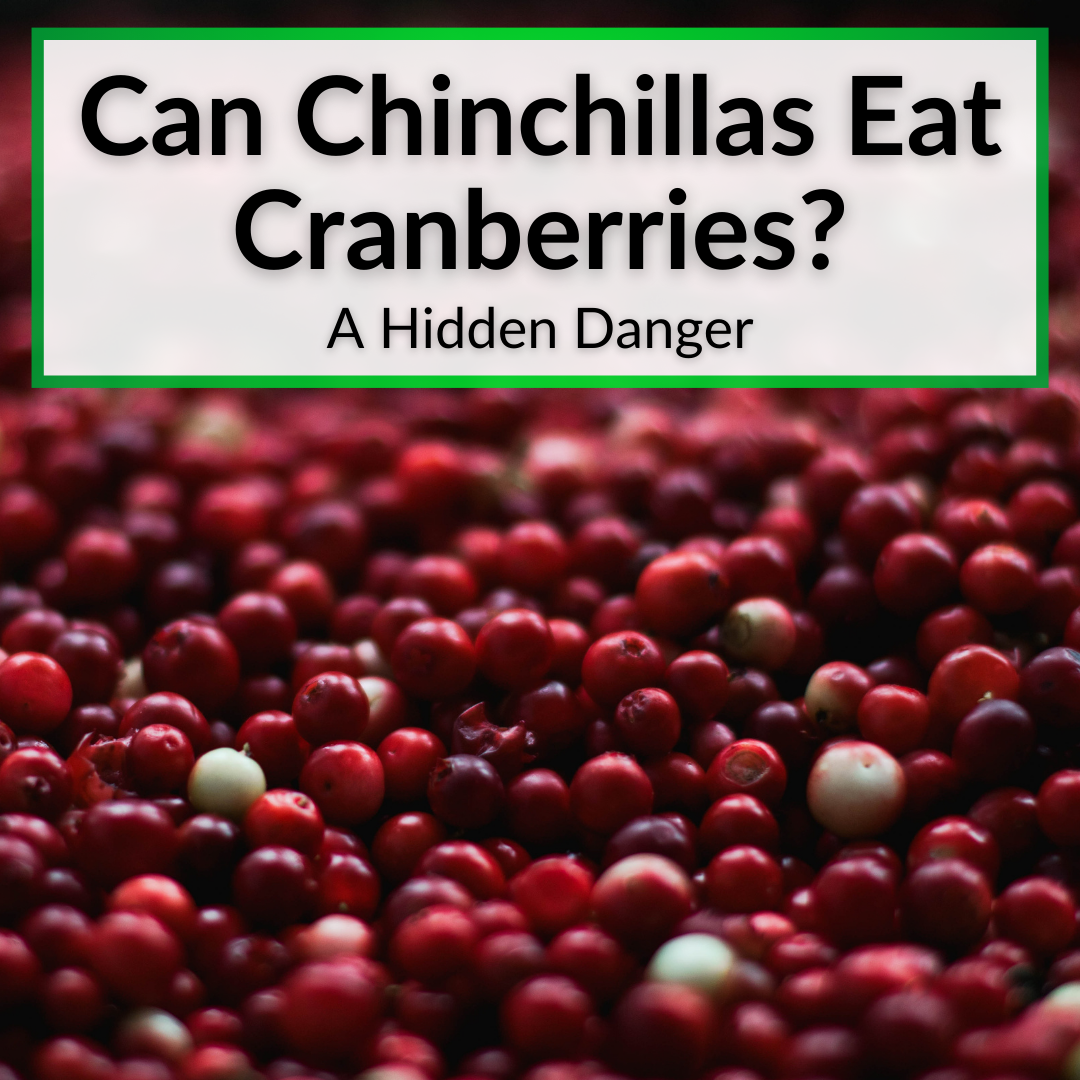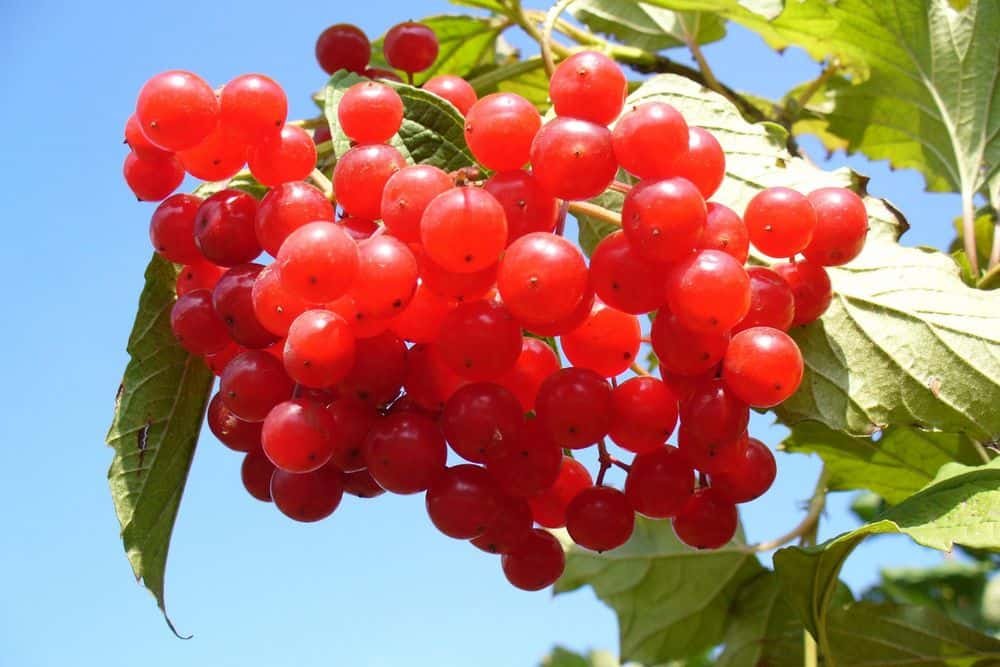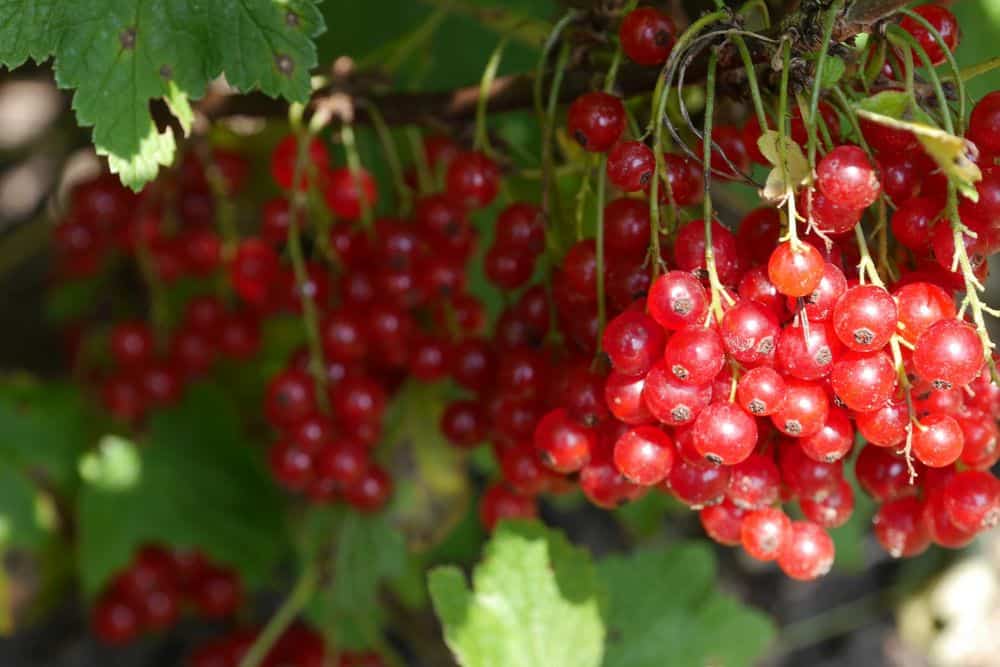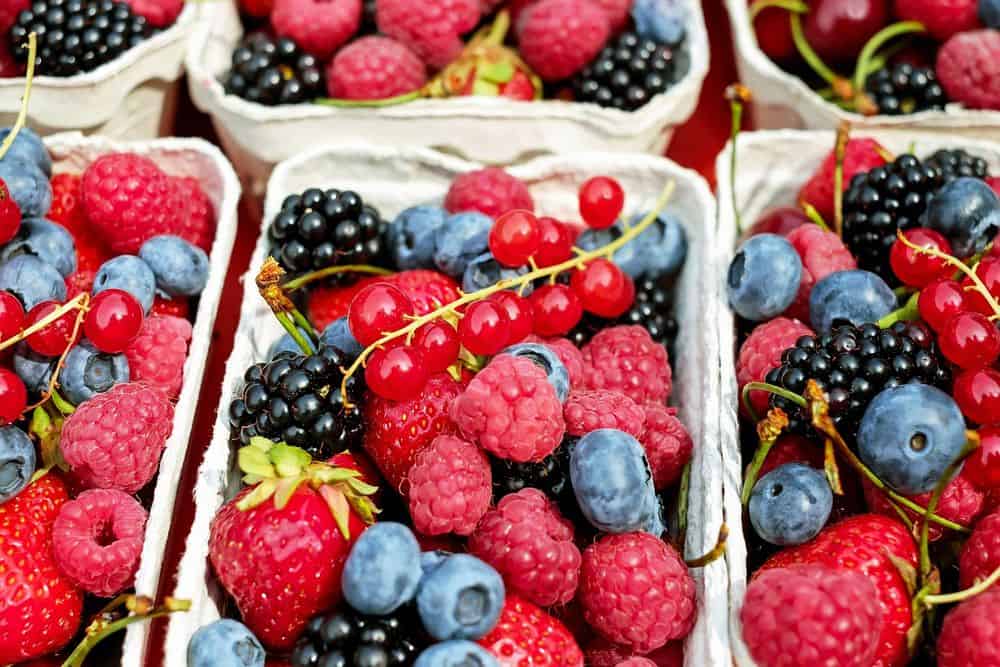
While they are incredibly healthy for us, they can be quite dangerous for chinchillas.
Most berries contain far too much water and sugar for these little rodents.
As a result, you can only feed them in tiny amount.
Or better yet, just avoid them altogether.
But some berries are better than others. Do cranberries land on that list?
Can chinchillas eat cranberries, or is this one of the berries that is best to avoid feeding your pet?
Keep reading to learn everything you need to know about feeding your chinchilla cranberries.
Contents
Can Chinchillas Eat Cranberries?
Yes, chinchillas can eat cranberries. But you need to keep the amount you feed you pet to a minimum. A single cranberry once or twice a week is fine. More than that could cause health problems.
Cranberries are acidic and they contain a lot of sugar and water. All three can cause problems for your chinchilla’s digestive system and could even be fatal, if you pet eats too much of them.
Too much sugar or water can cause your chinchilla to bloat and can even lead to sickness, diarrhoea and digestive issues. The last thing you want is for your pet to be in pain, which is why you should not feed more than a single cranberry once or twice a week.

Let’s take a look at both dried and fresh cranberries and see why dried are generally better. We’ll also take a look at some other fruits that are a better treat for chinchillas than cranberries.
Dried Cranberries
Dried fruits are usually a healthier alternative to fresh fruits for your chinchilla, mainly because the water content is much lower. As mentioned, water is a big problem for these rodents.
The reason for that is that they have evolved to need very little water to survive. Their natural habitat is the dry Andes Mountains in South America. Animals there find very little water, so they have to be able to make do without it.
As a result, chinchillas retain water incredibly well. That is why their pee is so concentrated and has a strong odor. This means they drink very little water and actually get most of what they need from their food.
But if they eat food that contains a lot of water, they can quickly end up ingesting too much of it. And that causes bloating, since they retain water.
But a lower water content is only half the story with dried fruits. In the absence of water, the sugar content of the fruit becomes more concentrated. That means much more sugar in a smaller amount of fruit. And remember, sugar is also a problem for chinchillas.
That is why dried cranberries (and all dried fruits) are still something you should only feed in very limited amounts. And only once or twice a week.
Fresh Cranberries

Chinchillas are more likely to enjoy fresh fruit over dried fruit, since fresh fruit is more common n their natural habitat. But, as mentioned, dried fruit is a bit better for them. And either way, small amounts only.
With fresh cranberries, cut a single berry into smaller pieces and feed those smaller pieces to your chinchilla, Do not feed more than a single berry. And if the berry is large, feed less. Just like dried fruit, you should never feed your chinchilla more than bite-sized pieces at a time.
Cranberry Alternatives
There are plenty of other snacks that you can feed to your chinchilla. Snacks it will love just as much as (and maybe more than) cranberries. More importantly, these snacks are also better for your chinchilla’s health.
Rose hips are a great choice to feed your chinchilla. They are the fruit of the rose bush. You usually buy them dried and they are packed full of vitamin C. Your chinchilla will love rose hips, because they are treats that the can find in the wild.
Rose hips do not contain quite as much water and sugar, so you can feed them a bit more regularly than cranberries. But you do still want to limit the amount. Feed your chinchilla a small amount the size of your fingernail every three or four days.
Marigold flowers also make a great alternative. Just like rosehips, they are full of vitamins and minerals your chinchilla can use (but does not need, since it gets all the nutrients it needs from hay and pellets). Your chinchilla will love the unique taste of marigold flowers and you can feed a few petals a couple of times a week.
What Other Berries Can Chinchillas Eat?

Popular berries to feed your chinchilla include goji berries and hawthorn berries. These types of fruit are a sweet treat that your chinchilla will love.
Similar to cranberries, you should only feed your chinchilla other forms of berry in small amounts. Even the best berries for chinchillas still have a high sugar and water content that can seriously affect your chinchilla’s health.
You can also feed your chinchilla any form of dried berries, even those that have too much water when fresh, since they lose their high water content when they are dried (obviously). Again, just make sure that you only feed your chinchilla berries in small amounts no bigger than your pinky fingernail, no matter the berry.
Berries that you should probably just avoid feeding your chinchilla (though tiny amounts are still fine) include strawberries, blueberries, blackberries and raspberries. This is again due to the high sugar and water content, but because these fruits are juicier, they going contain more sugar and water.
Can Chinchillas Have Cranberries: Final Thoughts
Chinchillas can eat cranberries, but only in very small amounts. Like all other berries, cranberries have a high sugar and water content. They are also quite acidic. Sugar, water, and acid all wreak havoc on a chinchilla’s sensitive digestive system.
That does not mean you can’t feed your chin cranberries, but it means you should not feed more than a single cranberry once or twice a week. And only if the berry is on the small side. Even then, there are other fruits that make better chinchilla treats.
Leave a Reply